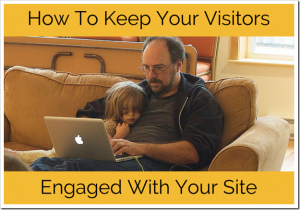If you work in a company, business, nonprofit, government agency, consulting practice,  school, or retail store, social media plays a role in your career. Honestly, the only career choices I can imagine that wouldn’t need or desire the resources available online might be high-seas pirate or hitman.
school, or retail store, social media plays a role in your career. Honestly, the only career choices I can imagine that wouldn’t need or desire the resources available online might be high-seas pirate or hitman.
In all seriousness, the pervasiveness of social mediais impacting everyone’s career, from availability of research tools, competitive analysis, perception mapping, and engagement with customers to insight from feedback and reviews, information distribution, and the personal social equity you’re able to build in the online community.
Here are just some examples of how various professionals can use social media:
- An attorney researches possible changes to case law on blogs and discussion forums through the American Bar Association.
- A graphic designer finds inspiration and new ideas from art boards on Pinterest.
- A human resources manager vets potential job candidates across various social networking platforms to ensure consistency in how they present themselves.
- A recent college graduate develops a compelling LinkedIn profile and networks with recruiters, influencers, and media to position herself for a job.
- A financial recruiter sets up filters and follows keyword hashtags to see what’s being discussed in their clients’ industries on Twitter.
- A marketing consultant contributes to important discussions on Huffington Post and Harvard Business Review blogs to get the attention of potential clients.
The possibilities truly are endless!
Develop a Strategy
Social media can be a powerful marketing and positioning tool as you grow and manage your career. For this reason alone, it makes sense to approach the online conversation with a strategy to keep your presence and activities focused and intentional.
As an individual, how you show up, share, and engage online builds your reputation and personal brand with audiences who may know you or want to know you. A thoughtful strategy allows you to interact with others, create tools (such as a profile), and share content with online audiences, helping them see your value over time.
Your strategy for social media should include:
- Understanding your values and beliefs. What do you find acceptable, compelling, or offensive? Transparency and authenticity — particularly online — are critical.
- What is your career objective? What are you trying to achieve via social media?
- What desired personal brand are you building? How do you want people to perceive you?
- Who is your target audience? To whom does your personal brand and online positioning need to be relevant and compelling?
- How will you monitor and measure results from your online activities? All good strategies have metrics to ensure the effort is producing results.
Make Social Media Work for You
The social media landscape offers many ways you can use its tools to grow your career, establish yourself as a subject matter expert (SME), and network. After you’ve developed your strategy, here are five tips to put social media to work for you:
1. Connect
Connect with like-minded individuals and professionals who support your values, offer insights into trends, industries, and ideas that would benefit you, and could connect you to their circles of influence in meaningful ways. A new contact in your same industry in England, for instance, could open doors for you to work in that country, if that’s one of your goals.
2. Build Your Reputation by Being Consistent
None of us is ever perfect, but we can be consistent. Assume that people looking for you online (potential employers, colleagues, networking contacts, competitors, etc.) want to see who you really are. They will look across multiple platforms — Google, LinkedIn, Twitter, YouTube — to see if you represent yourself and your values in the same way. If you’re a “party girl” onFacebook or Instagram but show up as a polished professional on LinkedIn, people will question which is the real you.
3. Add Value to the Conversation
You might be using tools like Twitter and RSS feeds to get timely and important news pushed to you, and that’s great, but the social space means you should contribute content back. If you have an opinion, advice, resources, or information, share those with online networks. If you belong to groups on LinkedIn, for instance, contribute your thoughts, questions, and input to the conversation. That’s why it’s called “social” media. We give and we take.
4. Make Yourself Findable
If you’re considering a career or job change, remember that many recruiters and employers post opportunities in forums and networks online, not just on job boards. Make yourself appealing and findable to recruiters who might be searching for you online. There are many ways, for instance, to optimize your LinkedIn profile to increase your chances of being found by recruiters searching by qualities and qualifications you might possess. A well-written and optimized online presence can cut down your prospecting work.
5. Measure Results
If you’re going to use social media to grow your online presence, you need to be able to see where your efforts produce the results you desire. For instance, if your goal is to increase your visibility online, you’ll want to regularly Google yourself. I call this “ego surfing.” You can set up a Google Alert to notify you when your name appears in a tweet, blog, article, or mention online. This gives you an excellent opportunity to reply and engage in the conversation.
Social media offers fabulous tools to research, learn, engage and grow your presence in dynamic, forward-thinking conversations happening in real time around the world. You can meet like-minded professionals in countries you might not be able to pronounce, share resources and ideas with people you could never get an appointment to see in person, and grow your personal brand to be attractive to future employers and clients who need what you offer.
Proper strategy, focus, and maintenance of your online presence will ensure you show up authentically and consistently in social media.
How has social media helped your career?
Digital & Social Articles on Business 2 Community(48)
Report Post







